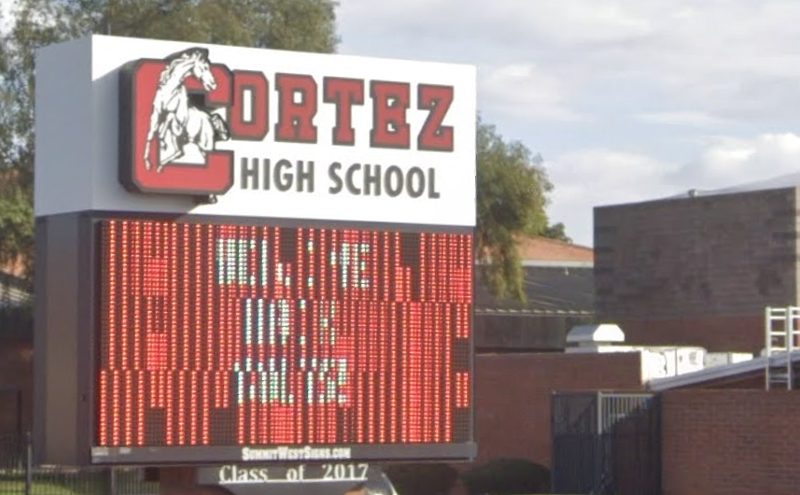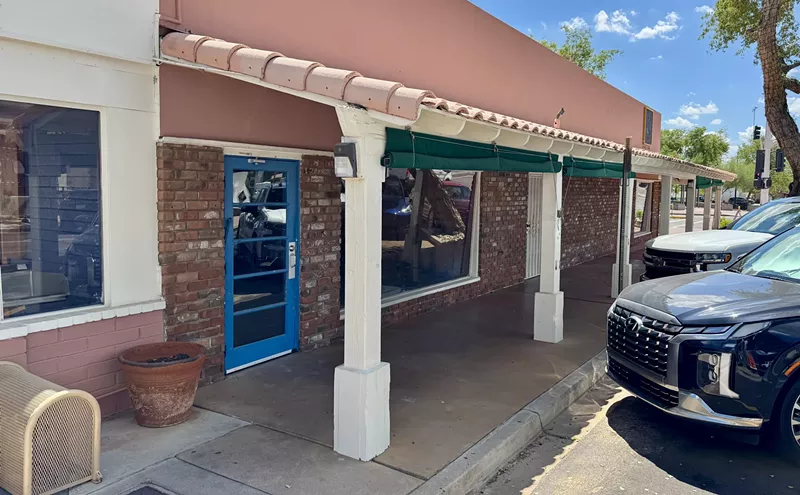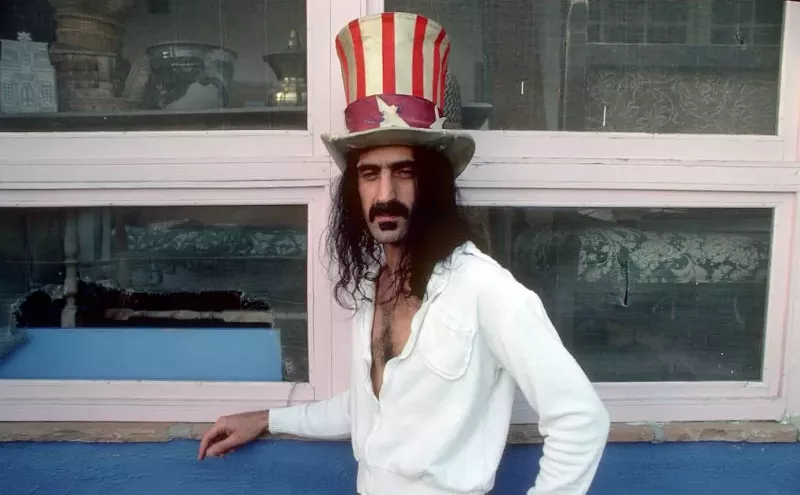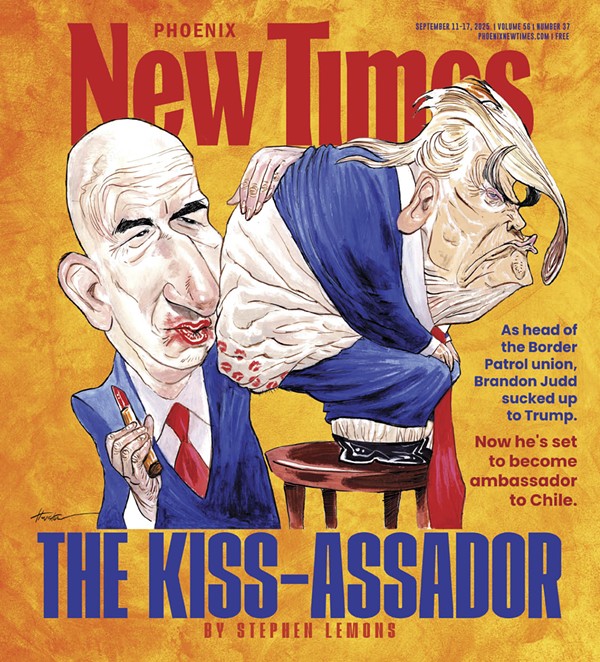On October 8, 2012, Rush Limbaugh — the radio host and resentment profiteer — said this to a listener who had called to complain about how hard it is to argue with liberals: "I wouldn't tell them what you hear anybody else say, because that's just an opening for them to say, 'Well, they're a liar,' or 'They don't know anything.'"
What's interesting here isn't whatever it is that Limbaugh's arguing. Instead, look at the pronouns. The indefinite anybody, which is singular, is antecedent to those theys, which are plural. That's a now-common usage that, in Limbaugh's youth, was not that common at all: In the '50s and '60s, in Cape Girardeau, Missouri, any real man speaking of a hypothetical person of uncertain gender would have defaulted to he.
This exemplifies the profound success of the waves of feminism that Limbaugh has made his millions railing against: Since the '60s, when a generation of activists and critics dared to argue that women should be allowed to make decisions and hold jobs of note and be paid worth a damn and not get raped, feminism has fundamentally changed most aspects of our lives today — even the very language Rush Limbaugh speaks.
And he doesn't even know it.
One of the year's best films, Mary Dore's She's Beautiful When She's Angry is an urgent, illuminating dive into the headwaters of second-wave feminism, the movement that — no matter what its detractors insist — has given us the world in which we live.
"We live in a country that doesn't like to credit any of its radical movements," Susan Brownmiller says in the film. "They don't like to admit in the United States that change happens because radicals force it." A score of those who dared force it turn up for fresh interviews in Dore's wide-ranging film: Here's Rita Mae Brown, Ellen Willis, Fran Beal, Judith Arcana, Roxanne Dunbar-Ortiz, and many more, dishing truth and priceless anecdotes about what it felt like to change the world — and how tough it was to do so. Dore's generous with fiery archival footage — marches, chants, meetings, gobsmackingly sexist news reports — as she traces the development of the National Organization for Women and its many sister groups, culminating in 1970's Women's Strike for Equality.
The doc is wise, moving, upsetting, and sometimes funny. Witness the "Stare at Your Own Damn Tits" T-shirt, or the ogle-in that Karla Jay arranged on Wall Street, where feminists leered at suited dudes after a newspaper article described brokers lying in wait each afternoon to grope and hiss at one buxom office worker. "Those pants bring out your best!" Jay calls.
We see that in a report Marlene Sanders taped for ABC News.
"How you like that hat over there?" asks one of Jay's feminist oglers, pointing at some dude.
"Oh," gushes Jay, "what a chapeau!"
Of course, the laughs sometimes stick in your throat: Weep over the classified ad, from an old gender-segregated help-wanted section, calling for "World's Best Looking Exec Secy to Assist World's Most Charming Boss."
Dore opens with the movement's birth — with Betty Friedan's The Feminine Mystique in '64 and the formation of NOW in '66 — and then, just a few years later, its splintering with the New Left. At a protest targeting Nixon's election, Marilyn Webb took the stage to speak out about women's issues ignored by the civil rights and anti-war movements — and about the shoddy treatment women were subjected to within organizations like the Students for a Democratic Society. Webb says in the film that she expected the women's movement to be viewed as the third leg of the New Left, a natural outgrowth of existing activism. Instead, it was attacked. As she and the late Willis describe it, the mostly male crowd responded with catcalls and threats: "Fuck her down a dark alley!"
Dark alleys, of course, became a rallying point for feminists and their earliest organizations. Besides the commonsensical equal-treatment platforms, they pushed for still-controversial reproductive freedoms, most pressingly the right never again to have to seek abortions from backstreet doctors. She's Beautiful lays out the pro-choice case with a clarity that's been lost in America: "We were always being subjected to a double message," Willis says. "Sex was supposed to be okay now, but if we were pregnant, it was our problem." Thousands of women died each year from illegal abortions; as the '60s bled into the '70s, the movement rallied around this. But as Dore is always quick to point out, that movement was never monumental. Fran Beal recalls arguing a pro-choice message to supporters of the Black Liberation Army, whose doctrine demanded women have babies to support the revolution — and that birth control was a white plot to perpetrate black genocide. Rita Mae Brown, meanwhile, kept clashing with NOW over its failure to address the experiences of all women. She says, with exuberant relish, "I called them on the carpet about class, I called them on the carpet about race, and I called them on the carpet about lesbianism. I said, 'You are treating women the same way men treat you.'"
The film builds to an epochal moment that is not as widely remembered as it should be: the August 1970 Women's Strike for Equality, organized by Friedan and NOW, that set thousands of women marching down Fifth Avenue on the 50th anniversary of the ratification of the 19th Amendment. "Women on the March: 'We're a Movement Now!' " trumpeted the headline in the Village Voice the next week. In a writeup as richly detailed as Dore's film, Mary Breasted laid out the strike's three demands: "Free abortion on demand, 24-hour daycare for all mothers, and employment, pay, and promotion opportunities for women equal to those of men."
Not one of those has yet been won. But that doesn't mean the march or the movement failed. Breasted seemed to sense it even then: "But no one seemed to harp much on those demands," she wrote. "The common bond was the demonstration itself, their presence in the streets together, sharing defiant sisterhood."
That defiant sisterhood changed the workplace, our sexual politics, our language. She's Beautiful When She's Angry is the best filmed account of how that happened you could ever expect to see.








